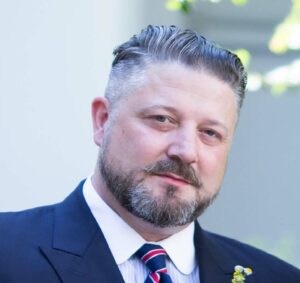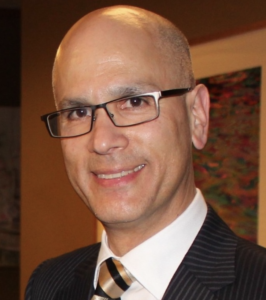Online Masonic SPEAKER Series Archive
Watch past Masonic speaker series presentations on demand
The Masons of California have launched an exciting new live, digital Masonic Speakers Series featuring enlightening lectures on a range of topics. See the entire lineup today—or, if you’ve missed one, catch up on past lectures below.
To view, click the ‘Watch Now’ button below and follow the steps to register and gain access to all past videos. Please note: you must register to watch the archived videos.
September 22
Trevor McKeown: A History of Masonic Print Culture
 For more than 300 years, Freemasons have defined, redefined, and illustrated themselves to the public through the world of print. While Masonry has largely remained an oral tradition, its print culture is a rich one—and historically illuminating. Join us Wednesday, Sept. 22 as Masonic writer and historian Trevor McKeown explores the history of Masonic print culture, from the early 18th century to the present.
For more than 300 years, Freemasons have defined, redefined, and illustrated themselves to the public through the world of print. While Masonry has largely remained an oral tradition, its print culture is a rich one—and historically illuminating. Join us Wednesday, Sept. 22 as Masonic writer and historian Trevor McKeown explores the history of Masonic print culture, from the early 18th century to the present.
Since 1996, McKeown has served as the curator of the Vancouver Masonic Library and Museum, and currently serves as the chairman of the Grand Lodge of British Columbia and Yukon’s library and archives board of trustees. His work has been presented in numerous publications and on television, and McKeown was the inaugural speaker at the Canadian Academy of Independent Scholars. He is a past Philalethes Luncheon Speaker at the Conference of Grand Masters of North America, and has been internationally recognized for his work.
McKeown is a member of Quatuor Coronati Lodge No. 2076, and past master of the Centennial-King George Lodge No. 171 and the Vancouver Lodge of Education and Research. He also served as grand historian from 2005–2018, among many other grand ranks he has held.
This lecture is being presented in partnership with Quatuor Coronati, the world’s leading research lodge.
September 8
Helge Horrisland: Books at the Cost of Life
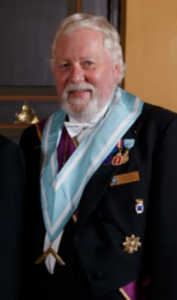 Freemasonry was a source of deep fascination—and vicious persecution—for the Nazi Party during World War II. A deep suspicion of underground organizing and suspected Jewish collaboration led Nazis to round up scores of German Freemasons, seizing their belongings and sending many to die in concentration camps. Masonic lodges saw records and archives going back a century or more confiscated and used to identify suspected members. In the end, the Nazi Party had collected through plunder one of the greatest troves of Masonic records on earth.
Freemasonry was a source of deep fascination—and vicious persecution—for the Nazi Party during World War II. A deep suspicion of underground organizing and suspected Jewish collaboration led Nazis to round up scores of German Freemasons, seizing their belongings and sending many to die in concentration camps. Masonic lodges saw records and archives going back a century or more confiscated and used to identify suspected members. In the end, the Nazi Party had collected through plunder one of the greatest troves of Masonic records on earth.
On Sept. 8, Masonic researcher Helge Horrisland explores the plight of those WWII-era Masons and the Jewish prisoners forced to index and tend to what was, in effect, the largest Masonic library in the world—and, decades later, the efforts to repatriate those effects.
Currently serving as the international repatriation coordinator for the Association of Masonic Museums, Libraries, and Archives in Brussels, Horrisland also operates as a repatriation consultant for various governments and institutions. He is a past master of Lodge No. 808 in Norway, has served as deputy master of the Norwegian Lodge of Research No. 1, and is a full member of Quatuor Coronati Lodge No. 2076. He is also past grand historian of the Grand Lodge of Norway and founder of its historical archive.
This lecture is being presented in partnership with Quatuor Coronati, the world’s leading research lodge.
August 25th
Martin Faulks: A Mosaic Palace: Freemasonry and the Art of Memory
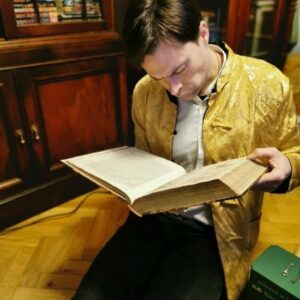 In the 16th century, William Schaw, the royally appointed Master of the Works, issued the “Schaw Statutes,” which acted as a code of rules governing the activities of operative Masons in Scotland. Within it, he stated that “The Warden of the Lodge… shall take trial of the art of memory and science thereof of every fellow craft and every apprentice according to their vocation and in case that they have lost any point thereof… pay the penalty as follows for their slothfulness.”
In the 16th century, William Schaw, the royally appointed Master of the Works, issued the “Schaw Statutes,” which acted as a code of rules governing the activities of operative Masons in Scotland. Within it, he stated that “The Warden of the Lodge… shall take trial of the art of memory and science thereof of every fellow craft and every apprentice according to their vocation and in case that they have lost any point thereof… pay the penalty as follows for their slothfulness.”
During the 16th century, the “art of memory” had far greater connotations than it may to the modern reader. It referred to a specific set of memory disciplines and techniques whereby one would create a memory palace, a kind of mnemonic storehouse. Why did Schaw make it mandatory for Masons to practice the art of memory, and why did they need to be tested in this art? Was it a reference to Masonic ritual and if so, does this mean the Masonic lodge is a form of memory palace? Join Martin Faulks as he explores exoteric and esoteric concepts associated with operative and speculative Masonry alike, back to the very roots of the craft we cherish today.
August 11th
Adam Kendall:
The Scandals and Secret Rites of Benjamin Hyam
Join Adam Kendall for a biographical deep dive into one of California Freemasonry’s most unsung—and misunderstood—pioneers. Through Benjamin Hyam’s forays into Masonic politics, obscure high-degree rites, and a little-known alliance with the famous esotericist John Yarker, Kendall paints a picture of the power dynamics of the 19thcentury fraternal experience and sheds light on the complex yet subtle network of people and events that influenced the character of a growing nation.
Adam Kendall is a California-based historian and Freemason, a member of Quatuor Coronati Lodge No. 2076, and the editor of the Scottish Rite Research Society quarterly, The Plumbline. Additionally, he serves as second vice president of the Philalethes Society. His publications and lectures concern the more obscure relationships between American popular culture, social movements, and fraternal societies during the mid-19th and early 20th centuries.
July 21
Felix Pintado:
Freemasonry in the Philippines
Freemasonry has a long and proud history in the Philippines—so much so that the first Philippine president described the country’s independence movement as “Masonically inspired, Masonically led, and Masonically executed.”
Join Masonic writer and researcher Felix Pintado as he discusses the history of Freemasonry in the Philippines and the ways it has been woven into the very fabric of Filipino society—both on the islands and among the diaspora.
Very Worshipful Brother Pintado is a past master of Sunshine Wisdom Lodge No. 226 in Australia, currently serves as the Grand Chaplain for the United Grand Lodge of Victoria, and also holds membership in a number of units within the progressive orders across several international Masonic jurisdictions.
June 30
2021 California Masonic Symposium
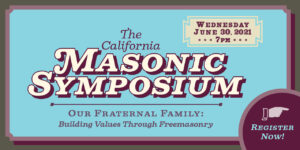
At the 2021 California Masonic Symposium, join Grand Master Arthur H. Weiss and other experts on Freemasonry and the appendant bodies in a wide-ranging virtual discussion of women’s Masonic groups including the Order of the Eastern Star, Job’s Daughters California, the Rainbow Assembly for Girls, and the Order of the Amaranth as they discuss the many ways they have and continue to promote the values of Freemasonry and foster leadership in their communities.
May 20
Tony Harvey:
Freemasonry and Scouting: Two Parallel Organizations
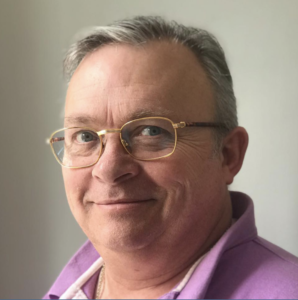 What historical connections does Freemasonry hold to the Scouting movement? Is the relationship still relevant? And what can each organization learn from the another? On May 20, join Tony Harvey, the 2012 Prestonian Lecturer, as he discusses the historical, current, and future relationship between Masonry and the Scouts. Harvey is an author and founder and developer of the Members’ Pathway program for the United Grand Lodge of England, a lifelong Scout, and has served in a variety of Masonic capacities around English Freemasonry.
What historical connections does Freemasonry hold to the Scouting movement? Is the relationship still relevant? And what can each organization learn from the another? On May 20, join Tony Harvey, the 2012 Prestonian Lecturer, as he discusses the historical, current, and future relationship between Masonry and the Scouts. Harvey is an author and founder and developer of the Members’ Pathway program for the United Grand Lodge of England, a lifelong Scout, and has served in a variety of Masonic capacities around English Freemasonry.
March 24
International Conference
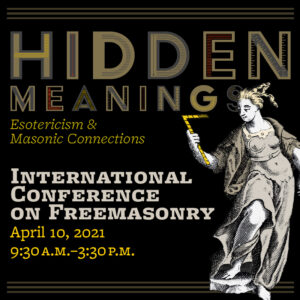 For more than 300 years, Masonic teachings and symbolism have attracted those in search of deeper, secret meanings about the natural and even supernatural world. These esoteric pursuits, shrouded in mystery and mysticism, have endured through the centuries and even today continue to fascinate seekers around the world.
For more than 300 years, Masonic teachings and symbolism have attracted those in search of deeper, secret meanings about the natural and even supernatural world. These esoteric pursuits, shrouded in mystery and mysticism, have endured through the centuries and even today continue to fascinate seekers around the world.
Join experts and scholars on Freemasonry as they meet online to discuss the eternal quest for esoteric knowledge and its broader relationship to the craft. The ninth annual International Conference on Freemasonry is a rare chance for Masons and non-Masons to dive deep on metaphysics, antiquity, and the occult.
March 24
Andrew Farleigh:
The Origins and Customs of the Festive Board
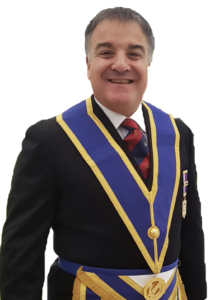 When Masons meet, Masons eat. But as with all things Masonic, the customs and traditions behind even wining and dining have incredibly deep roots. Join Masonic researcher and orator Andrew Farleigh as he discusses the origins and customs of the Masonic festive board, from the Premier Grand Lodge of London to present-day lodges around the globe. Farleigh is the grand orator for the Provincial Grand Lodge of Middlesex, England, and orchestrates a team of more than 30 Masonic lecturers in talks given around the world. He also serves in several Grand Masonic capacities in Great Britain.
When Masons meet, Masons eat. But as with all things Masonic, the customs and traditions behind even wining and dining have incredibly deep roots. Join Masonic researcher and orator Andrew Farleigh as he discusses the origins and customs of the Masonic festive board, from the Premier Grand Lodge of London to present-day lodges around the globe. Farleigh is the grand orator for the Provincial Grand Lodge of Middlesex, England, and orchestrates a team of more than 30 Masonic lecturers in talks given around the world. He also serves in several Grand Masonic capacities in Great Britain.
February 17
Russ Charvonia, Past Grand Master of Masons in California: Our Role in Restoring Civility to Society
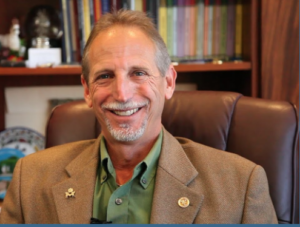 It seems that more than ever, we see incivility all around us. What tools does Freemasonry provide to help cope with the current state of affairs? Can Masons help restore civility in society? Join Past Grand Master Russ Charvonia as he discusses how the fraternity can help improve civility by improving themselves. Charvonia is an active California Freemason with several lodges and heads the Masonic Family Civility Project.
It seems that more than ever, we see incivility all around us. What tools does Freemasonry provide to help cope with the current state of affairs? Can Masons help restore civility in society? Join Past Grand Master Russ Charvonia as he discusses how the fraternity can help improve civility by improving themselves. Charvonia is an active California Freemason with several lodges and heads the Masonic Family Civility Project.
February 3
C.R. Dunning, Jr.: Contemplative Masonry
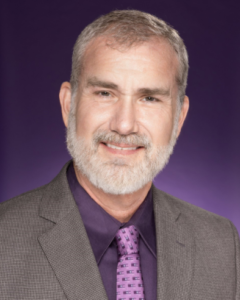 Masonic ritual involves the development of the psyche through contemplation of allegories and symbols. Join us as author and academic C.R. Dunning explores the ways that meditation and mindfulness are intertwined with Freemasonry and the contemplative elements of the ritual. Dunning is an author and consultant on issues of contemplative practices, mental health, and Freemasonry. He is the founding superintendent of the Academy of Reflection, a chartered organization for Scottish Rite Masons looking to deepen their Masonic experience. He is also cofounder of the Masonic Legacy Society, and a psychotherapist and administrator at Texas Christian University.
Masonic ritual involves the development of the psyche through contemplation of allegories and symbols. Join us as author and academic C.R. Dunning explores the ways that meditation and mindfulness are intertwined with Freemasonry and the contemplative elements of the ritual. Dunning is an author and consultant on issues of contemplative practices, mental health, and Freemasonry. He is the founding superintendent of the Academy of Reflection, a chartered organization for Scottish Rite Masons looking to deepen their Masonic experience. He is also cofounder of the Masonic Legacy Society, and a psychotherapist and administrator at Texas Christian University.
January 20
Dr. Michael Coughlin
From Mythos to Logos: Andrea Palladio, Freemasonry, and the Triumph of Minerva
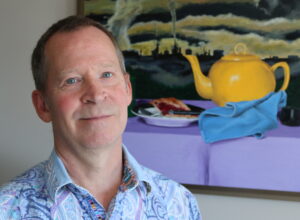 Could it be that the Italian Renaissance architect Andrea Palladio is responsible for the development of speculative Masonry?
Could it be that the Italian Renaissance architect Andrea Palladio is responsible for the development of speculative Masonry?
Join us as Dr. Michael Coughlin, a historian of art and architecture, explores the role of Palladio and the 16th century Italian town of Vicenza in paving the way for Masonry as we know it today—and the myths and secrets that were built into the very structures of the time. Dr. Coughlin is an art and architecture historian and author of From Mythos to Logos: Andrea Palladio, Freemasonry, and the Triumph of Minerva (Brill, 2019); and the upcoming A Theory of Hands: The Semiotics of Faith in Early Modern Art.
January 13
Dr. Ola Wikander
Northwest Semitic Poetics and Masonic Motifs
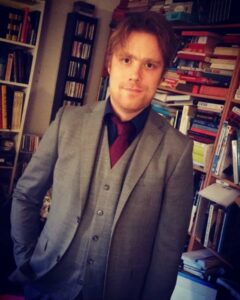 The ideas contained within Freemasonry relate directly to the Old Testament. But what if they actually go back even further?
The ideas contained within Freemasonry relate directly to the Old Testament. But what if they actually go back even further?
Join Dr. Ola Wikander, an expert on ancient linguistics, as he explores the pre-Biblical events that early Masonic ritualists have drawn on over centuries and that live on today. Dr. Wikander is a scholar of the Hebrew Bible and Ugaritic literature at Lund University, where he is also a reader and senior lecturer. Since 2018, he has been a Pro Futura Scientia fellow at the Swedish Collegium for Advanced Study in Uppsala. He is also a Master Mason under Le Droit Human, an international co-Masonic order.
December 27
Dr. John L. Cooper
St. John the Evangelist in Freemasonry
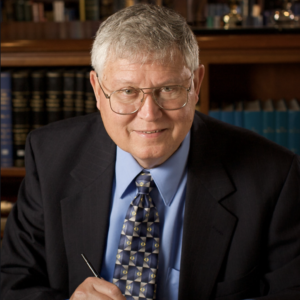 St. John the Evangelist is one of the two most prominent patrons saints of the Craft. Join Dr. John L. Cooper as he explores the story, symbolism, and enduring relevance of this figure.
St. John the Evangelist is one of the two most prominent patrons saints of the Craft. Join Dr. John L. Cooper as he explores the story, symbolism, and enduring relevance of this figure.
John L. Cooper III is a past grand master and grand secretary of the Grand Lodge of California. He has also served as senior councilor of the Southern California DeMolay Association and is an honorary member of the International Supreme Council. Much of his Masonic career has involved researching and writing on the history and symbolism of Freemasonry.
November 4
Josef Wäges: The Early Scot Masters
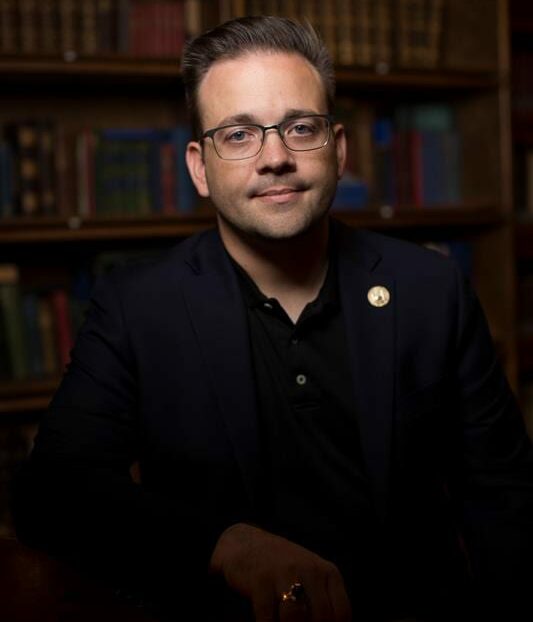 The Scots Master degree (or Scotch Master) has always proved itself as one of the most intriguing and elusive of the high degrees of Freemasonry. Join Masonic historian and writer Josef Wages as he shares his latest research into one of the most enigmatic rituals in the history of the craft.
The Scots Master degree (or Scotch Master) has always proved itself as one of the most intriguing and elusive of the high degrees of Freemasonry. Join Masonic historian and writer Josef Wages as he shares his latest research into one of the most enigmatic rituals in the history of the craft.
Wäges is a prolific writer and editor of Masonic scholarship. He is currently preparing the forthcoming books Ecossais Masonry: A History of the High Degrees from the Scots Master to the Order of the Royal Secret and The Columbian Illuminati. He is a member of Plano Lodge No. 768, Fate Lodge No. 802, and a 32º member of the Dallas Valley of the Scottish Rite. He is also a fellow of the Grand College of Rites, a full member of the Texas Lodge of Research and the Michigan Lodge of Research, a life member of the Missouri Lodge of Research, and a member of the Blue Friars.
October 21
Dr. Christopher McIntosh: Freemasonry and the Rosicrucian Stream
 Separating fact from fiction, this presentation examines the long relationship between the Rosicrucian furor of the 17th and 18th centuries with early speculative Freemasonry.
Dr. Christopher McIntosh is a world authority on the Rosicrucian furor. His books include The Rose Cross and the Age of Reason: Eighteenth-Century Rosicrucianism in Central Europe and its Relationship to the Enlightenment; and The Rosicrucians: The History, Mythology and Rituals of an Esoteric Order. McIntosh has also written, translated, and edited works on a variety of related subjects.
Separating fact from fiction, this presentation examines the long relationship between the Rosicrucian furor of the 17th and 18th centuries with early speculative Freemasonry.
Dr. Christopher McIntosh is a world authority on the Rosicrucian furor. His books include The Rose Cross and the Age of Reason: Eighteenth-Century Rosicrucianism in Central Europe and its Relationship to the Enlightenment; and The Rosicrucians: The History, Mythology and Rituals of an Esoteric Order. McIntosh has also written, translated, and edited works on a variety of related subjects. October 6
Dr. David Harrison: The Lost Rites of Freemasonry
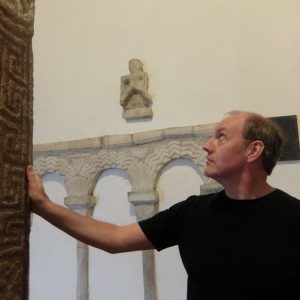
Join Dr. David Harrison as he explores the history of the lost rites of Freemasonry, including the mysterious and influential rites developed in continental Europe during the 18th century.
Dr. Harrison is a Masonic historian who has written several books on the history of Freemasonry, including The Genesis of Freemasonry; The Transformation of Freemasonry; and The Lost Rites and Rituals of Freemasonry. He has also contributed many papers and articles on various related subjects to Philalethes, Freemasonry Today, MQ, The Square, and Heredom. Harrison has appeared on TV and radio providing expertise and insight into the subject of Freemasonry and fraternal societies.
September 23
Dr. Ric Berman: The Antient Grand Lodge and the Foundations of American Freemasonry
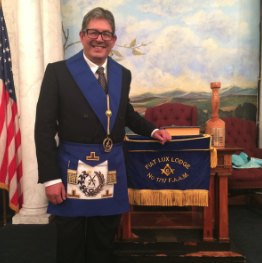
The influence of the Irish in America is identified today with the more than four million Southern Irish immigrants, mainly Catholic, who dominated 19th and 20th century migration. But the pattern in the 18th century was different—and fundamentally so.
In this presentation, presented in partnership with Quatuor Coronati, the premier lodge of Masonic research, Dr. Ric Berman tracks the impact of the 350,000 Scots-Irish and London Irish who migrated to America between 1730 and 1800, settling in Pennsylvania, West Virginia, the Piedmont (the western parts of North and South Carolina), and the emergent states of Ohio, Kentucky, and Tennessee.
This wave of migration was instrumental in introducing Antients Freemasonry to America and blending it with English—or “Moderns”—Freemasonry to create a new form of American Masonry.
Dr. Berman is a widely published author and Masonic expert. His books include The Foundations of Modern Freemasonry; Schism: A study of Antients Freemasonry; Loyalists & Malcontents; Espionage, Diplomacy and the Lodge; and From Roanoke to Raleigh. He is currently working on a history of America’s Grand Lodge of England-appointed colonial Grand Masters.
Dr. Berman is a fellow of the Royal Historical Society, a Life Fellow of the Huguenot Society, and a visiting research fellow at Oxford Brookes University. In addition to his books, he has written numerous journal articles and delivered lectures at Masonic conferences and academic symposia globally. A Freemason for over 40 years, he holds grand rank in the United Grand Lodge of England and is a past master of Quatuor Coronati. He is also a DC Freemason and a member of Fiat Lux No. 1717.
September 9
Mark Tabbert: A Deserving Brother: George Washington and Freemasonry
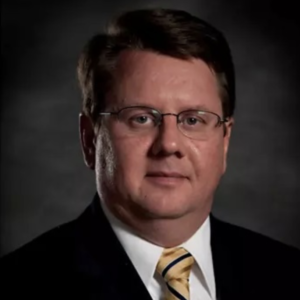 Learn about George Washington’s relationship with, and support of, Freemasonry in the United States, and explore its role in the context of Washington’s life and achievements.
Learn about George Washington’s relationship with, and support of, Freemasonry in the United States, and explore its role in the context of Washington’s life and achievements.
Mark A. Tabbert is director of the Library and Museum Collections at the George Washington Masonic National Memorial Association, a past president of the Masonic Library and Museum Association, a fellow and past board member of the Masonic Society, and past secretary of the Masonic Restoration Foundation.
He is the author of four books American Freemasons: Three Centuries of Building Communities; Museum and Memorial: Ten Years of Masonic Writings; and with Prof. William D. Moore, Secret Societies in America: Foundational Studies of Fraternalism. His most recent work is George Washington’s Rule for Freemasons in Life and Lodge. Tabbert is currently working on another book on Washington, to be published by the University of Virginia Press in 2021.
This presentation is part of a collaboration between Quatuor Coronati, the world’s premier Masonic research lodge, and the Grand Lodge of California.
August 26
7 p.m.
Ben Williams: Freemasonry in the Territory of Colorado: Masons, Miners, and the Rush to Statehood
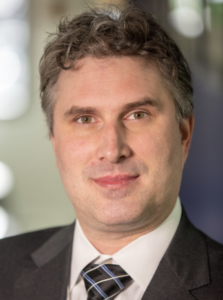
Learn about Freemasonry in the Centennial State, an overview of the role of Freemasonry in the Kansas Territory gold country, and the emergence of the statehood of Colorado in this lecture on Masonry in the West, presented in partnership with Quatuor Coronati, the premier lodge of Masonic research.
This presentation is part of a collaboration between Quatuor Coronati, the world’s premier Masonic research lodge, and the Grand Lodge of California.
August 19
Dr. S. Brent Morris: The High Degrees in the USA, 1730–1830
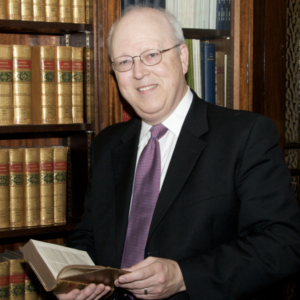 Degrees beyond the Craft have played an integral role in American Freemasonry since the early 18th century. Learn about the timeline of events and degrees that gave rise to the progressive Masonic orders in America in this illuminating lecture from one of the country’s leading Masonic experts, presented in partnership with Quatuor Coronati, the premier lodge of Masonic research.
Degrees beyond the Craft have played an integral role in American Freemasonry since the early 18th century. Learn about the timeline of events and degrees that gave rise to the progressive Masonic orders in America in this illuminating lecture from one of the country’s leading Masonic experts, presented in partnership with Quatuor Coronati, the premier lodge of Masonic research.
S. Brent Morris is a prolific Masonic researcher and writer. He was the founder of the Scottish Rite Research Society in 1991, editor of Heredom’s first 14 volumes, and is the managing editor of the Scottish Rite Journal of the Supreme Council 33°, Southern Jurisdiction, USA.
He retired as a mathematician from the US federal government with 25 years’ service, having also taught at Duke, Johns Hopkins, and George Washington Universities and given invited lectures at over 100 universities.
He was initiated in Highland Park (now Louis G. Priester) Lodge, No. 1150 in Dallas, Texas in 1971. In 1979 and 2000 he served as master of Patmos Lodge, No. 70, Ellicott City, Maryland, and in 1980 was the grand director of ceremonies of the Grand Lodge of Maryland. He is high priest (first principal) of Zeredathah Royal Arch Chapter, No. 35, in Laurel, Maryland, and a member of many other Masonic orders.
This presentation is part of a collaboration between Quatuor Coronati, the world’s premier Masonic research lodge, and the Grand Lodge of California.
August 12
Dr. Mike Kearsley: Rob Morris, The Conservators, and the Failure to Establish a Grand Lodge of the United States
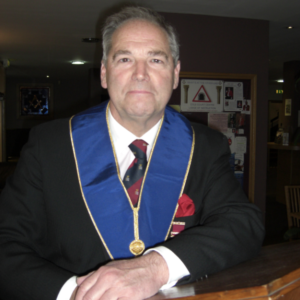
Who was Rob Morris? Masonic dreamer and innovator? Or a self-serving charlatan? A man whose legacy has had such an effect on the American Masonic “family” is clearly a multifaceted individual worth studying. This lecture is presented in partnership with Quatuor Coronati, the premier lodge of Masonic research.
Mike Kearsley is a prolific researcher and author, and a past Provincial Grand Orator for Middlesex. In 2011, he was awarded the Norman Spencer Prize. He was appointed Prestonian Lecturer in 2014 and ANZMRC lecturer in 2019.
Kearsley was initiated into Freemasonry in Hawera Lodge in Taranaki, New Zealand, and passed and raised in Mairehau Lodge in Christchurch. He later joined David Bonner Lodge, the musicians’ lodge of Middlesex, becoming master in 2010 and thereafter secretary. He is a member of the Temple of Athene Research Lodge, Feltham Lodge, and Quatuor Coronati.
This presentation is part of a collaboration between Quatuor Coronati, the world’s premier Masonic research lodge and the Grand Lodge of California.
August 5
Dr. Hans Schwartz: Freemasonry in Revolutionary New England
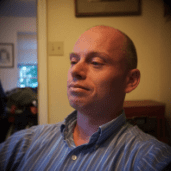
The bonds of brotherhood were tested beyond measure during the American Revolutionary War. Learn the various interconnectivity and complexities that Freemasonry played in late 18th-century New England, and more about some of those famous names that have become so associated with it.
Hans Schwartz was awarded his MA in history at Salem State University and his doctorate in Atlantic and Early American History at Clark University. His research focuses on Freemasonry in trans-Atlantic networking in the Atlantic colonial period, and in political organizing in the American Revolutionary period.
Hans has presented and published several papers on trans-Atlantic Freemasonry as a cultural, political, and intellectual network, notably at the Annual Meeting of the American Historical Association, the German Historical Institute, and the QC Conference. His dissertation will be published next year.
Dr. Schwartz has extensive teaching experience in the United States and Japan in history, science and English, and is presently a lecturer at Northeastern University. Masonically, he is a PM of Mount Carmel Lodge, Lynn, Massachusetts.
This presentation is part of a collaboration between Quatuor Coronati, the world’s premier Masonic research lodge and the Grand Lodge of California.
July 16
California Masonic Symposium:
Masons of the Gold Rush
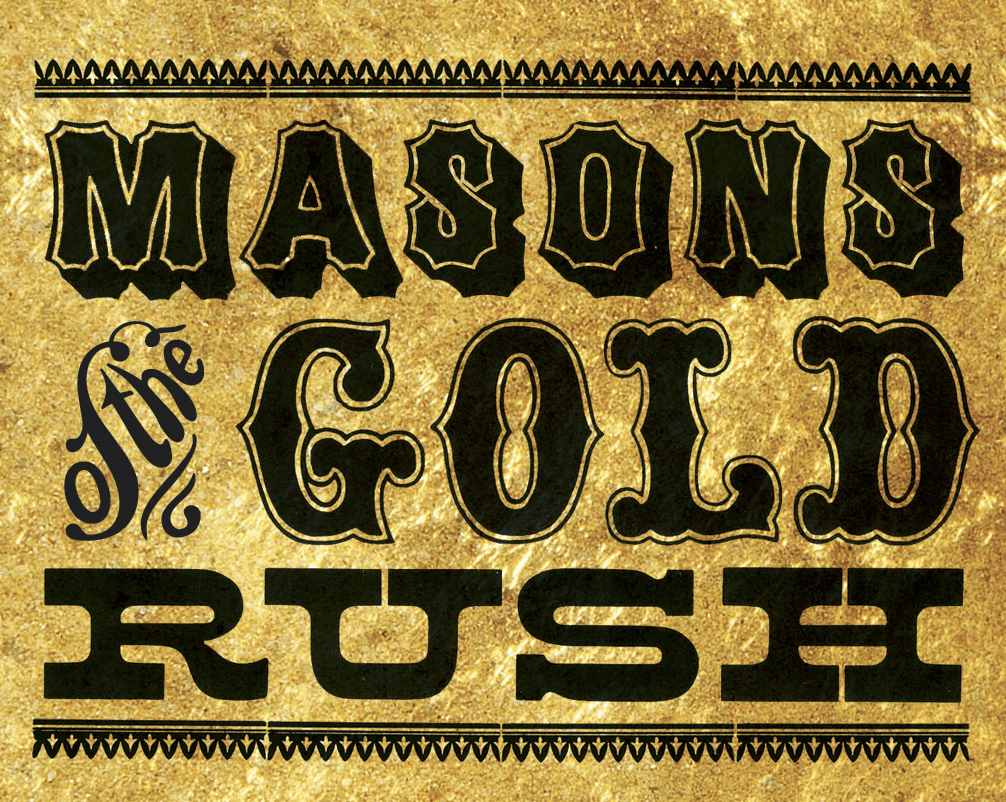 California’s Mother Lode region is one of our state’s greatest resources—not just because of the riches in gold it bore during the Gold Rush period more than a century and a half ago, but also for the people, ideas, and history that emerged from the vein. It is also integral to the history of Freemasonry in California, as many of the pioneers that made the area their home were Masons who would prove instrumental to the formation of the first Grand Lodge of California. The 2020 California Masonic Symposium explores the founding of California and the founding of its Grand Lodge during the Gold Rush period, with a focus on the Gold Country Masons who were at the heart of both. From the key characters and moments to the organizational, moral imperatives of Masonry that underpinned the Golden State, it’s an illuminating reckoning of the legacy that is the Grand Lodge of California.
California’s Mother Lode region is one of our state’s greatest resources—not just because of the riches in gold it bore during the Gold Rush period more than a century and a half ago, but also for the people, ideas, and history that emerged from the vein. It is also integral to the history of Freemasonry in California, as many of the pioneers that made the area their home were Masons who would prove instrumental to the formation of the first Grand Lodge of California. The 2020 California Masonic Symposium explores the founding of California and the founding of its Grand Lodge during the Gold Rush period, with a focus on the Gold Country Masons who were at the heart of both. From the key characters and moments to the organizational, moral imperatives of Masonry that underpinned the Golden State, it’s an illuminating reckoning of the legacy that is the Grand Lodge of California.
Speakers including Grand Master Trauner will explore life during the Gold Rush, how mining camps turned into the state’s founding cities, and the origins of the California Masonic Ritual.
July 8
Teresita Aréchiga: The Women of Freemasonry: Past, Present and Future
Despite its being a fraternal organization, women have been a part of Freemasonry since its inception. Explore the rich but little-known history of women’s participation in the craft, from early operative Masons in the Middle Ages through today’s world of mixed and feminine lodges, with Teresita Aréchiga, the grand master of the Women’s Grand Lodge of California.
Aréchiga is among the most accomplished women’s Freemasons in the country. She is a cofounder of the first exclusively feminine Grand Lodge of Freemasonry in California, which was launched in 2017. Previously, women’s lodges in California had operated under the Women’s Grand Lodge of Belgium and Le Droit Humain.
She was raised a Master Mason in 2009 under the Gran Logia de California USA (Hispana). Since then, she has helped charter the Women’s Lodge Estrellas de Isis No. 5 and Women’s Lodge Minerva No. 3, both in the Los Angeles area, as senior warden. She is past master of Lodge Estrellas de Isis No. 5 and Lodge Gaia No. 1, which she founded in 2017. She is also a 30° Dama Kadosh under the Scottish Rite from the Hispanic Co-Masonic Order.
In Spring 2019, Aréchiga’s play, The Masonic Working Tools, was presented at the Loge Art et Lumiere of the Grand Orient of France in Santa Monica. She has also written articles for Masonic publications in Mexico, traveled to and participated in several international Masonic conferences, and been profiled in California Freemason magazine.
June 24
Robert L. D. Cooper: Scottish Freemasonry and the United States of America
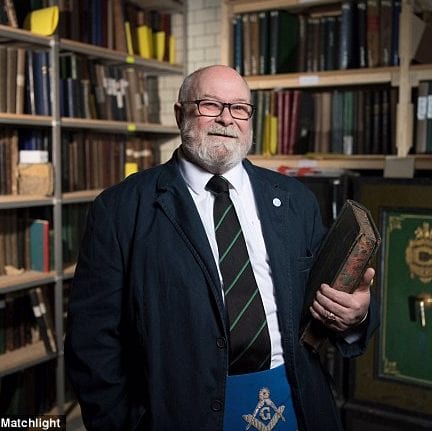 The oldest Masonic lodges in the world—prior to the formation of Grand Lodge Freemasonry—hail from Scotland. In fact, the earliest evidence of a purely speculative Mason can be found in Scotland in 1598. As such, Scotland has played a vital role in the development and spread of the craft, particularly to the United States. In this presentation, Robert L.D. Cooper will outline the evolution of Scottish Masonry and its deep and profound ties to the United States and the American Masonic ritual.
The oldest Masonic lodges in the world—prior to the formation of Grand Lodge Freemasonry—hail from Scotland. In fact, the earliest evidence of a purely speculative Mason can be found in Scotland in 1598. As such, Scotland has played a vital role in the development and spread of the craft, particularly to the United States. In this presentation, Robert L.D. Cooper will outline the evolution of Scottish Masonry and its deep and profound ties to the United States and the American Masonic ritual.
Robert L.D. Cooper is the curator of the Grand Lodge of Scotland’s Museum and Library, making him the custodian of some of the oldest and most precious Masonic documents in the world. A past master of the Quatuor Coronati Lodge of Research and a recognized historian and expert on Scottish Freemasonry, the Knights Templar, and the Sinclair family, Cooper has lectured around the world and has appeared on TV numerous times as a Masonic authority, as well as having authored numerous articles and books. Among them are The Red Triangle: A Brief History of Masonophobia, The Masonic Magician: The Life and Death of Count Cagliostro and His Egyptian Rite, and The Rosslyn Hoax? Viewing Rosslyn Chapel from a New Perspective.
June 16
Brett McKay: The Life-Changing Power of Conversation
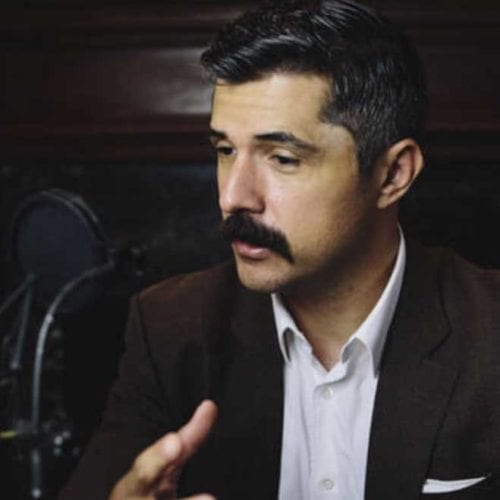
The Life-Changing Power of Conversation will explore why engaging in conversation with others can enrich your life, highlighting its benefits and providing brass-tack tips to help you get more out of your conversations, including how to start small talk, how to avoid conversational narcissism, and how to take conversations deeper.
Brett McKay is founder and editor-in-chief of The Art of Manliness, the largest independent men’s lifestyle magazine on the web, with over 10 million monthly pageviews. His podcast, which has more than 400 episodes, has been downloaded more than 100 million times. McKay holds a degree in Letters with a focus on classics from the University of Oklahoma and graduated in the top 10 of his class at the University of Tulsa College of Law. He lives with his wife (and AoM’s executive editor), Kate, and their two children in Tulsa, Okla. When he’s not writing about manliness, McKay enjoys barbell training and spending time outdoors.
June 10
R. Stephen Doan: Freemasonry and Mozart’s The Magic Flute
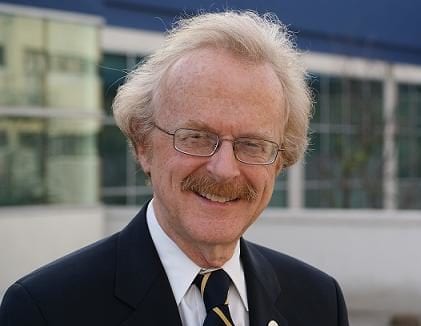
In September of 1791, W. A. Mozart premiered The Magic Flute. It was an instant success. Yet many do not know that Mozart was a proud Mason, and in this great opera lies many references to the Masonic journey. In this enlightening lecture, Past Grand Master R. Stephen Doan discusses the opera and the composer’s intent for the piece to be a dramatic representation of a person’s initiation into Freemasonry.
In 1992, R. Stephen Doan was installed as grand master of Masons in California. He was raised a Master Mason in 1971 and is past master of Triangle Lodge No. 548, now Sunset Lodge No. 369. He has served on several Grand Lodge boards and committees and is currently consultant of the Jurisprudence Committee and vice chair of the Institute for Masonic Studies.
Doan has also been active with numerous appendant bodies and Masonic orders. He is a deputy member of the International Supreme Council of DeMolay, and holds the 33rd degree in the Scottish Rite and served as venerable master of the Los Angeles Lodge of Perfection. He is a member of the York Rite Bodies, Al Malaikah Shrine Temple, the Royal Order of Scotland, Knight Masons, and Societas Rosicruciana in Civitatibus Foederatis. Together with his wife, Donna, he has also served as worthy patron and worthy matron in the Triangle Chapter of the Order of the Eastern Star.
May 27
Dr. Andreas Önnerfors: The Development of Scandinavian Freemasonry
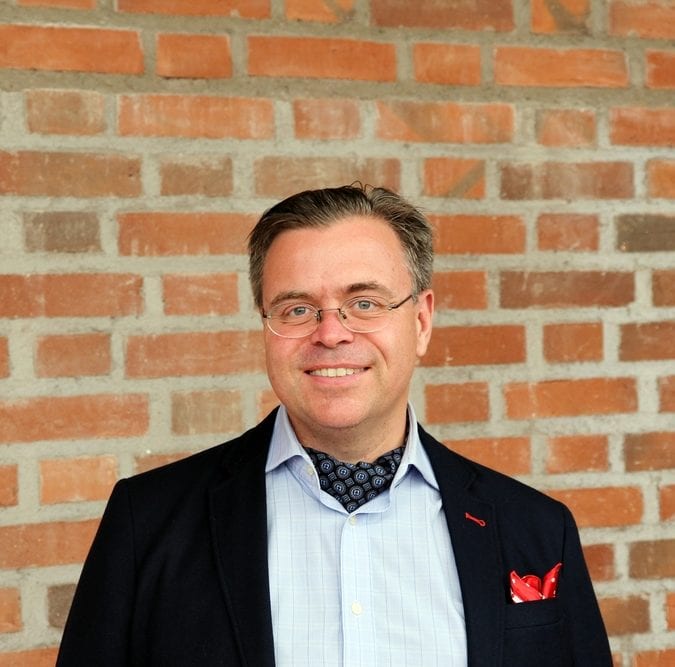
Dr. Andreas Önnerfors is an associate professor in the History of Sciences and Ideas Department at the Universities of Gothenburg and Lund, and is the current master of the Quatuor Coronati Lodge of Research. From 2007–2010 he was contracted by the University of Sheffield, where he worked as director of the Centre for Research into Freemasonry and Fraternalism, and as a senior lecturer in their department of history. Dr. Önnerfors is the author of Freemasonry – A Very Short Introduction, and numerous other papers on Freemasonry and fraternal culture. He regularly lectures on Freemasonry in academia and the general public, and is frequently consulted by international media on various subjects.
May 20
George Boys-Stones: A System of Morality: Aristotle and the Making of the Ritual
2020 Prestonian Lecturer
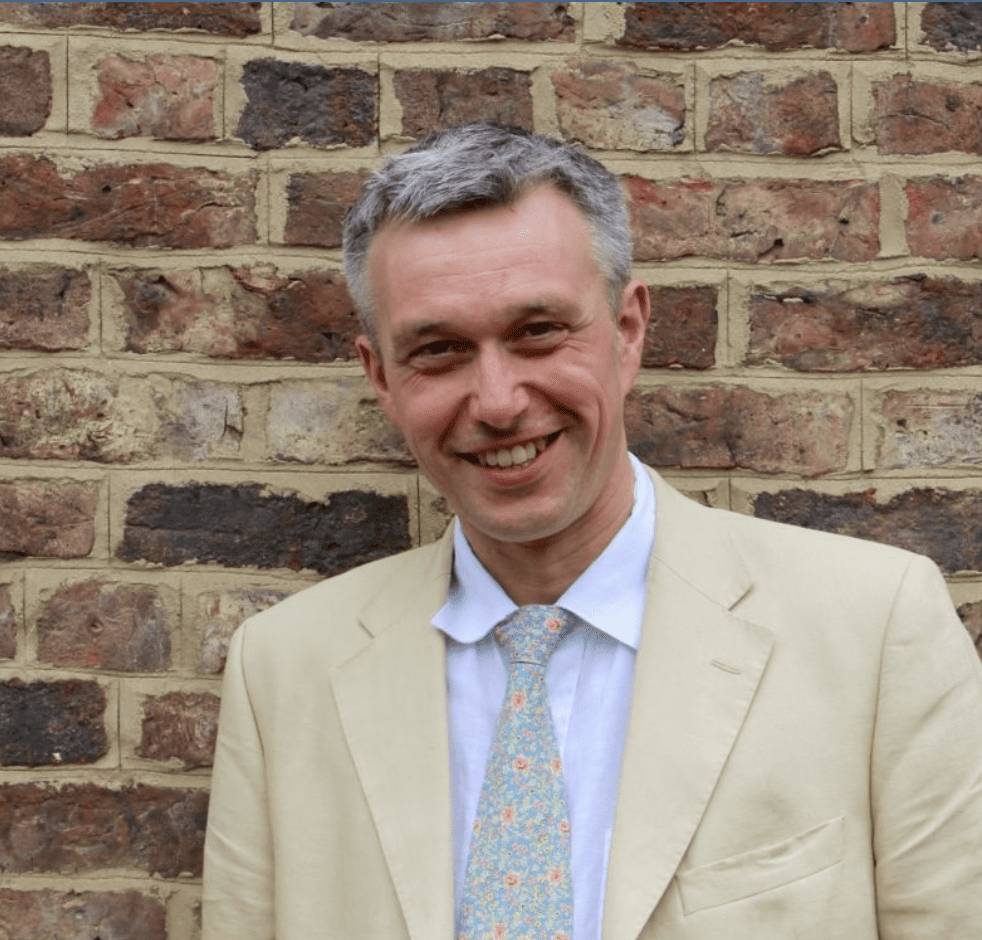
English Freemasonry defines itself as a “system of morality,” but what does that phrase mean? This new study traces it back to the work of William Preston (1742-1818), who argued that Freemasonry teaches a philosophical approach to virtue. According to Preston, the rituals of Freemasonry are designed to lead the initiate through the ethical thought of Aristotle. His view proved popular, and was decisive in shaping the ritual approved for use by the United Grand Lodge of England shortly after its formation in 1813. Almost all English lodges, and many others throughout the world, still use a ritual derived from this one, and, perhaps without realizing it, continue to pay silent testimony to Preston and to Aristotle in their work.
W. Boys-Stones is this year’s Prestonian Lecturer, an appointment made each year since 1918 by the United Grand Lodge of England. This will be the first time he delivers this lecture.
Mr. Boys-Stones is a professor of Classics, a member of the Classics Department at Durham University from 1999 to 2019 before joining the faculty of the University of Toronto for the 2019-2020 term. He is a prolific author on subjects pertaining to the philosophies of the ancient Greek and Roman worlds, and is managing editor of Phronesis, a journal of ancient philosophy. Earlier this year, he published Platonist Philosophy 80 BC to AD 250: An Introduction and Collection of Sources in Translation which, among other feats, puts into English for the first time a number of Platonist primary writings.
May 13
Dr. Oscar Alleyne: Perspectives on the COVID-19 Pandemic: Our Path to Resilience and Recovery
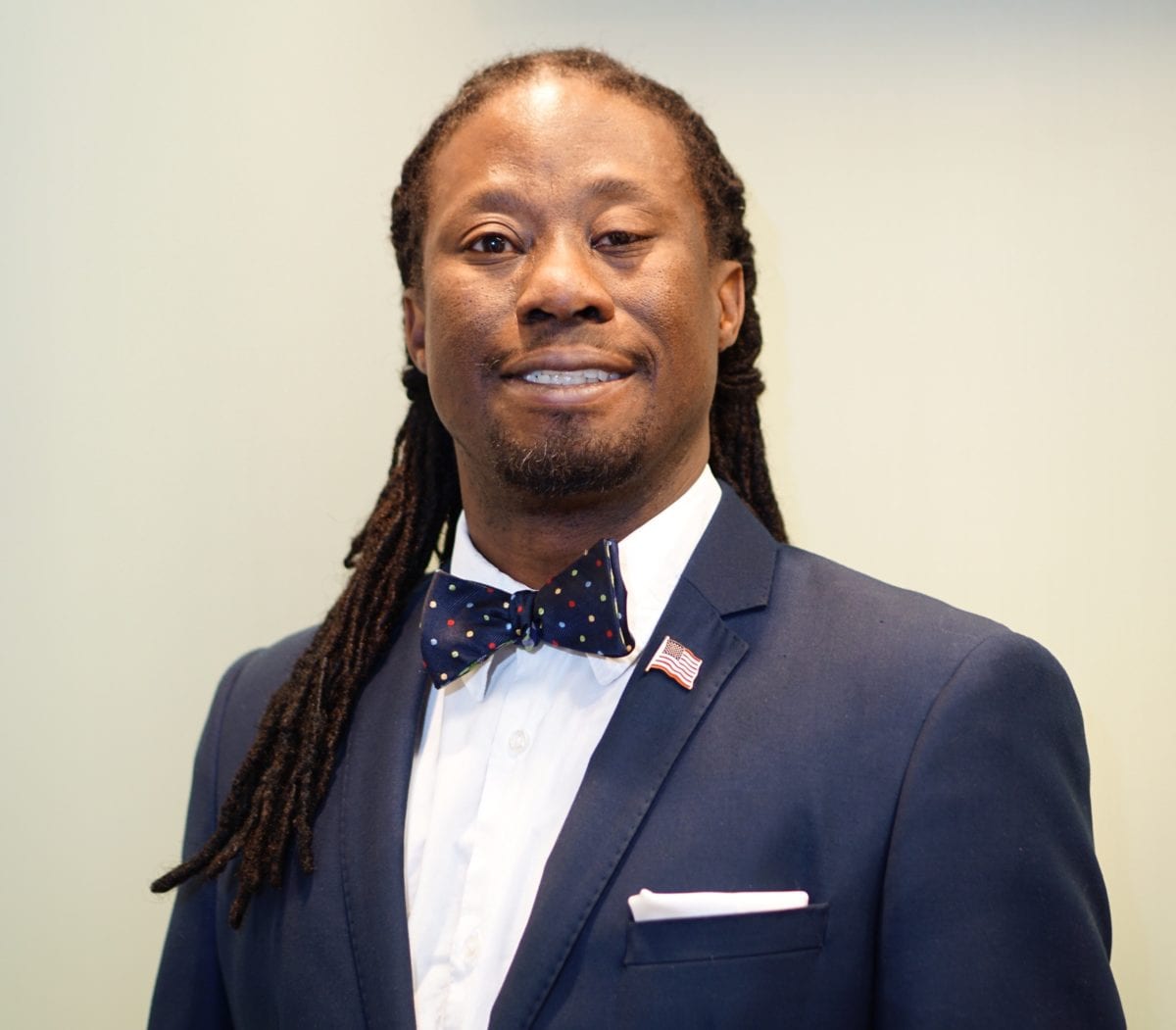 A published author, subject matter expert and scientific presenter in the field of applied epidemiology, health policy and public health, Dr. Oscar Alleyne is senior advisor for public health programs at the National Association of County and City Health Officials in Washington, DC. There he is responsible for providing executive leadership, strategic visioning, senior management, and technical assistance to the country’s 3,000 local governmental public health departments. He directly oversees a portfolio of Infectious Disease Prevention and Control, Public Health, Pandemic and Catastrophic Preparedness, and Public Health Informatics. He interfaces directly with the US Centers for Disease Control and Prevention, the Department of Homeland Security, the FBI, and the Office of the Assistant Secretary for Preparedness and Response, FDA, USDA, EPA and several other national agencies.
A published author, subject matter expert and scientific presenter in the field of applied epidemiology, health policy and public health, Dr. Oscar Alleyne is senior advisor for public health programs at the National Association of County and City Health Officials in Washington, DC. There he is responsible for providing executive leadership, strategic visioning, senior management, and technical assistance to the country’s 3,000 local governmental public health departments. He directly oversees a portfolio of Infectious Disease Prevention and Control, Public Health, Pandemic and Catastrophic Preparedness, and Public Health Informatics. He interfaces directly with the US Centers for Disease Control and Prevention, the Department of Homeland Security, the FBI, and the Office of the Assistant Secretary for Preparedness and Response, FDA, USDA, EPA and several other national agencies.
Dr. Alleyne is the junior grand warden of the Masons of New York. Raised in Wallkill Lodge No. 627 in Orange, he served from 2014–2016 as master of Wappingers Lodge No.671. He is also past commander in chief and past sovereign prince of the Scottish Rite Valley of the Hudson and served as the first grand superintendent for the state of New York of the Grand Council of the Allied Masonic Degrees USA.
Dr. Alleyne lectures internationally on historical, ritualistic, philosophical, leadership, and other topics of Masonic interest and is a member of several Masonic research and invitational bodies.
April 29
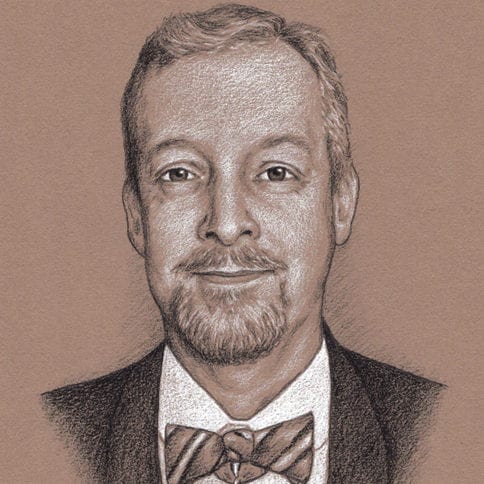 Author and historian Patrick Craddock—past master of Conlegium Ritus Austeri No. 779 (Nashville) and member of Prometheus No. 851 in San Francisco—and a noted expert on Masonic regalia, discusses the history of the Masonic apron and how it has changed over 250 years. The presentation features images of many historic American aprons.
Author and historian Patrick Craddock—past master of Conlegium Ritus Austeri No. 779 (Nashville) and member of Prometheus No. 851 in San Francisco—and a noted expert on Masonic regalia, discusses the history of the Masonic apron and how it has changed over 250 years. The presentation features images of many historic American aprons.
In addition to his work as a writer and museum exhibits curator at the Carter House Museum in Franklin, Tenn., Craddock is the owner of the Craftsman’s Apron.

